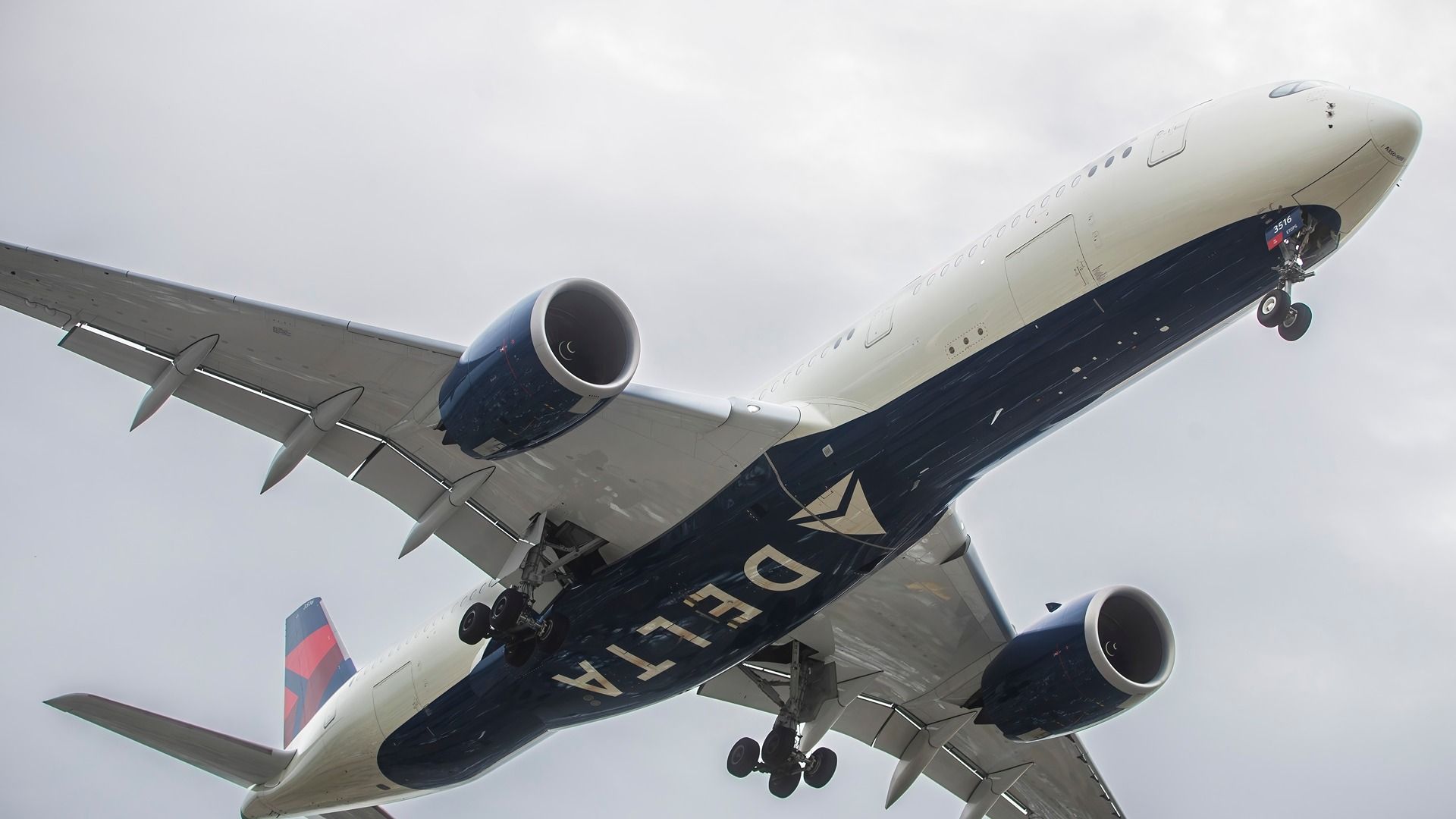World
Delta Air Lines Upgrades A350s with New Cabin Design for 2025

Delta Air Lines (NYSE: DAL) is set to enhance the travel experience for its passengers by retrofitting the cabins of its Airbus A350 fleet. This redesign is part of a broader initiative that will also include upgrades to the Boeing 757, with the new cabin design scheduled to debut in the fall of 2025. The updated cabins will feature improved seating, enhanced lighting, and modern technology, aiming to create a more comfortable and cohesive environment for travelers.
Details of the Cabin Redesign
The cabin redesign will introduce a range of enhancements across all classes, from Delta One to the main cabin. Notable features include memory-foam cushions, warm color palettes, and mood lighting designed to enhance passenger rest during flights. The introduction of USB-C ports and wireless charging capabilities will cater to the tech-savvy traveler, while a new gray-scale flight map will improve accessibility for passengers with visual impairments.
Delta’s decision to shift to a premium 275-seat layout on its Airbus A350s signals a departure from the previous 339-seat configuration, which was inherited from ex-LATAM aircraft. This change, expected to be completed by October 25, 2025, is aimed at improving service quality and creating a more uniform experience across the airline’s fleet.
Strategic Motivation Behind the Upgrade
Delta Air Lines is not merely refreshing one specific cabin; the airline is standardizing a new design language across its entire A350 fleet. By enhancing all cabin classes, Delta aims to provide passengers with a consistent experience, characterized by similar textures, lighting, and layout logic, regardless of the aircraft type.
In Delta One, passengers will benefit from soft, breathable fabrics and refined finishes, while Delta Premium Select will receive upgrades such as deeper recline and improved device storage. The Delta Comfort+ and main cabin areas will see a calming color palette and upgraded cushions, contributing to an overall atmosphere of comfort.
The redesign also reflects an understanding of the crew’s experience, with optimized galleys and jump seats aimed at improving workflow and service quality. This home-like atmosphere, characterized by tactile materials and appealing design elements, is intended to enhance the overall passenger experience.
Delta’s unique upgrade philosophy focuses on touch, sight, and utility. The airline plans to incorporate breathable textiles and memory-foam cushions to mitigate temperature swings and pressure points during long flights. Additionally, the lighting will be transformed to support passengers’ circadian rhythms, with warm tones at mealtimes and gentle morning lighting to ease wake-up.
Implications for Delta’s Premium Product Line
As demand shifts towards premium economy and high-quality seating options, Delta is strategically expanding its offerings in both Delta One and Premium Select. This approach is designed to capture high-yield leisure traffic and corporate demand, reinforcing Delta’s revenue quality.
From an operational standpoint, more premium-heavy layouts can streamline boarding processes and reduce conflicts at lavatories, ultimately enhancing overall on-time performance. The financial implications are significant, as premium cabins generate more revenue per square foot compared to economy seating. This aligns with Delta’s broader strategy to maintain a competitive edge against rivals such as United Airlines and American Airlines.
Delta’s retrofitting initiative addresses brand consistency issues, particularly regarding the ex-LATAM aircraft, which featured a high-density layout that did not align with Delta’s standard. By modernizing its fleet, Delta aims to improve its brand coherence, enhance operational efficiency, and optimize aircraft for long-haul missions.
The upgrade of the A350s represents a commitment to elevating the travel experience for all passengers, contributing to Delta’s long-term strategic goals. As the airline invests in its fleet and premium product offerings, it positions itself to better meet the evolving demands of high-volume, high-yield travelers.
In summary, Delta Air Lines is reaffirming its commitment to quality and consistency as it prepares to roll out significant cabin upgrades across its fleet. This initiative not only aims to enhance the passenger experience but also strengthens Delta’s competitive position in the aviation market, ensuring continued success in the premium travel sector.
-

 Science2 months ago
Science2 months agoToyoake City Proposes Daily Two-Hour Smartphone Use Limit
-

 Health2 months ago
Health2 months agoB.C. Review Reveals Urgent Need for Rare-Disease Drug Reforms
-

 Top Stories2 months ago
Top Stories2 months agoPedestrian Fatally Injured in Esquimalt Collision on August 14
-

 Technology2 months ago
Technology2 months agoDark Adventure Game “Bye Sweet Carole” Set for October Release
-

 World2 months ago
World2 months agoJimmy Lai’s Defense Challenges Charges Under National Security Law
-

 Technology2 months ago
Technology2 months agoKonami Revives Iconic Metal Gear Solid Delta Ahead of Release
-

 Technology2 months ago
Technology2 months agoSnapmaker U1 Color 3D Printer Redefines Speed and Sustainability
-

 Technology2 months ago
Technology2 months agoAION Folding Knife: Redefining EDC Design with Premium Materials
-

 Technology2 months ago
Technology2 months agoSolve Today’s Wordle Challenge: Hints and Answer for August 19
-

 Business2 months ago
Business2 months agoGordon Murray Automotive Unveils S1 LM and Le Mans GTR at Monterey
-

 Lifestyle2 months ago
Lifestyle2 months agoVictoria’s Pop-Up Shop Shines Light on B.C.’s Wolf Cull
-

 Technology2 months ago
Technology2 months agoApple Expands Self-Service Repair Program to Canada









